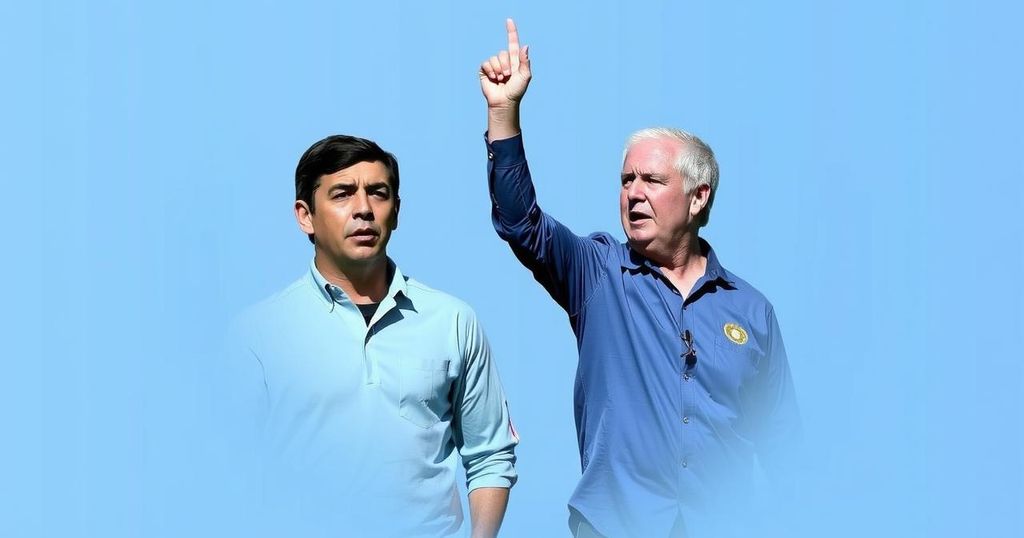Uruguay’s presidential runoff is set between Álvaro Delgado of the National Party and Yamandú Orsi of the Broad Front after a tight first electoral round. The election has ignited strong competition over pressing issues like security and economic policy, amidst voter indecision and low campaign enthusiasm. Both candidates represent distinct political legacies, and a lack of radical shifts in platform reflects Uruguay’s stable democratic values. The electoral outcome will shape the nation’s future direction.
In Uruguay, the upcoming presidential runoff has transformed into a competitive race between the incumbent candidate Álvaro Delgado from the National Party and Yamandú Orsi of the Broad Front. Amidst a close result from the previous election, both parties failed to secure an outright majority. The Broad Front previously governed for 15 years, under which significant progressive reforms were enacted, including the legalization of same-sex marriage and abortion. With Delgado securing 27% and Orsi 44% in the first round, the election is poised to be particularly contentious given the current balance of power in Congress, which remains evenly split.
Voter sentiment is particularly polarized due to a spike in violent crime, which both candidates have addressed in their campaigns. Delgado, a seasoned politician and veterinarian, seeks to uphold President Lacalle Pou’s policies, advocating for continuity under a banner of ‘re-elect a good government.’ Conversely, Orsi aims to usher in a ‘new left’ with strategies aimed at revitalizing the nation’s investment climate and agricultural sector. As many voters remain undecided, analysts note a general voter apathy resulting from the candidates’ vague campaign messages. This election reflects Uruguay’s strength as a democratic nation, devoid of extreme anti-establishment sentiments seen in other regions.
The current electoral context in Uruguay stems from a runoff election necessitated by the inability of any candidate to achieve a majority in the previous voting round. The political landscape has shifted significantly since the previous leadership of the Broad Front, which enjoyed an extended tenure focused on progressive reforms. Recent elections have demonstrated a growing divergence between the center-right and left-leaning factions. The electorate faces pressing issues, including rising crime rates and economic policies, while grappling with candidate campaigns that have failed to ignite excitement or clarity.
The upcoming presidential runoff in Uruguay represents a significant event in the nation’s political landscape, highlighting the divisions between the center-right and leftist coalitions. As both candidates approach election day with closely contested views and uncertain voter sentiments, the outcome will have lasting implications for Uruguay’s policy direction and democratic health. This election underscores the importance of addressing pressing issues such as economic stability and public safety while navigating the complexities of voter expectations in a rapidly changing political context.
Original Source: www.clickondetroit.com






